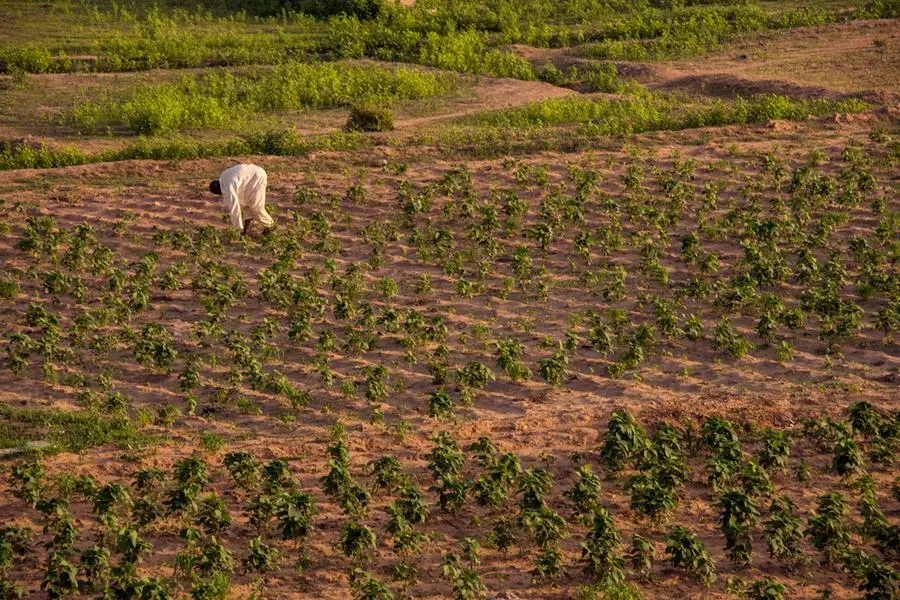PHOTO
Stakeholders at the pre-season training for extension officers in Lagos have highlighted the significance of agricultural extension delivery system in realising sustainable food security for nations.
The stakeholders, who gathered at a one-day training with the theme; Agricultural Extension: A tool for achieving sustainable food security and economic development in Lagos state’ organised by the state’s Agricultural Development Authority (LSADA) at Oko Oba, Agege for extension officers in the state pointed out that the officers remain the intermediaries between research and farmers.
Commissioner for Agriculture in the state, Abisola Olusanga commended the Lagos State Agricultural Development Authority (LSADA), which is the Agricultural Extension arm of the Lagos State Ministry of Agriculture.
Related PostsNANS urges FG to provide adequate security for tertiary institutions10 affordable foods that support healthy brainOver N61.08trn spent on food, others, as analysts decry minimum wage injustice
She said that no country can achieve sustainable food security without a dynamic and strong agricultural extension delivery service system.
She said that extension agents have played a key role in improving the status of the rural populace through regular visits and advisory services, especially in the areas of access to inputs and output markets, credit facilities, improvement in on-farm as well as other off-farm activities to complement seasonal farm earnings.
“It is in this regard that the State government has placed a high value on its Agricultural Extension officers and technical staff. They disseminate proven agricultural technologies which are tailored towards boosting agricultural development in the state.
Olusanya said that through their activities many improved varieties of crops have been introduced to the state such as, the yellow variety of cassava, which is high yielding and rich in vitamin A, which helps to prevent night blindness, orange flesh sweet potato (OFSP), a variety of potatoes rich in vitamin A.
“From the rural to urbanareas of Lagos, the riverine to the upland areas. Extension agents make sure they disseminate agricultural messages to all areas of Lagos where farming is taking place. Introduction of drip irrigation system, integrated pests and production management (IPPM).
“In this era of changing climate and the challenges it poses to food production and availability, the efforts of the subject matter specialists (SMSs) and the extension agents are quite commendable, considering the various capacity building they are conducting and awareness they are creating in mitigating these challenges of food security.” She said.
Mr Alade Adewale, Ag. Programme Manager earlier in his welcome address said that the theme of the training marks the beginning of a journey towards innovation, sustainability, and prosperity.
“Over the course of this training, we will delve into the latest advancements, exchange valuable insights, and equip ourselves with the knowledge and tools necessary to tackle the challenges that lie ahead.”
He said that the state cannot achieve full and sustainable food security without a dynamic and strong agricultural extension delivery service system.
“Our role as extension officers is pivotal. We are the bridge between research and practice, between knowledge and action. It’s our responsibility to ensure that the wealth of information generated within the realms of research reaches the farmers’ fields, enabling them to optimize their yields, mitigate risks and enhance their livelihoods.
He encouraged all the participants to actively participate, to share experiences, and to engage wholeheartedly in the discussions and activities lined up.
Pitan Babalola, a former Programme Manager of LSADA in his presentation on ‘Issues and Challenges Of Food Security In Lagos State- The Way Forward,’ pointed out that proper orientation, training and re-training of Agricultural officers (EAs, SMSs and Enumerators is crucial to achieving food security in Lagos state, thereby promoting sustainable agriculture in a healthy environment through efficient service delivery.
He highlighted some causes of food insecurity to be; high population, low extension agents to farmers’ ratio, climate change, poor extension communication method, conversion of agricultural lands to other uses, lack of storage facilities (Silos) among others.
On the way forward he called for the provision of silos for strategic grain reserves, enhancing functionality of agricultural training institutes, Climate-smart agriculture, effective use of Subject Matter Specialists, extension communication and knowledge management among others.
Professor Oluremi Ojo, of the Institute of Agricultural Research and Training, in her presentation explained that food security is the situation when all people, at all times, have physical and economic access to sufficient, safe and nutritious food to meet their dietary needs and food preferences for a healthy and active life.
She said that the most common causes of food insecurity in Africa and other third world countries were; drought and other extreme weather events, pests, livestock diseases, climate change, among others.
Professor Ojo noted that food security has become a major policy issue in many countries with the increase in food prices worldwide, and that food insecurity is elevated in Nigeria, as food security in Nigeria is worse than in comparator countries, and its position has deteriorated since 2019.
She said that agriculture is a key economic sector in Nigeria, that high yields are clearly a major determinant of food security, and they are currently low in Nigeria, stressing that low yield levels in Nigeria are strongly associated with scarcity of agricultural inputs.
On the roles of extension workers, she said that Agricultural extension entails informal out of school educational services for training and influencing individuals to adopt improved practices in crops and livestock production, management, conservation and marketing.
Additionally she said, extension is extremely important in helping to confront problems of food availability, access and utilization and that it helps to enhance the productivity and consequently the production of food.
Copyright © 2022 Nigerian Tribune Provided by SyndiGate Media Inc. (Syndigate.info).




















